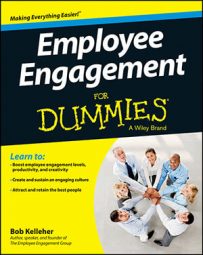Keep your Gen X and Gen Y employees engaged at work by understanding more of what motivates them. The first generation to insist on work–life balance, this group, born between 1965 and 1980, includes more women, as well as men who have assumed more home and family responsibilities.
Not surprisingly, Generation X was also the generation that pushed for paternity benefits and support for stay-at-home dads. This generation was the first to rely heavily on technology.
After watching their parents and older siblings get laid off or fired by an increasingly un-loyal corporate America, Generation X brought free agency to the workplace. What do I mean by “free agency”? Let's use a sports analogy. It used to be that a top-level athlete would play his whole career for a single team. Carl Yastrzemski, Al Kaline, Magic Johnson, and Dan Marino are but a few examples.
These days, however, these athletes are in the minority. More and more athletes follow the money. At the same time, the franchises they play for are quick to trade or cut players. Loyalty is dead in sports, and in many ways, it's dead in business as well. Cradle-to-grave employment has been replaced by business free agency.
Employers no longer offer the same long-term benefits and security to their employees, and employees are quick to quit a job to follow a boss, to pursue a new opportunity, or to stay home to raise their children.
Caught between Baby Boomers and Generation Y, Gen X workers are experiencing growing unrest. Because their Baby Boomer predecessors have delayed retirement (or opted out altogether), members of Generation X have been denied opportunities to advance. Their situation has been made even worse by the Great Recession of 2008–2009, which has resulted in fewer growth opportunities.
And of course, there's Generation Y — soon to be the largest demographic in the workforce — breathing down Generation X's neck. It's no wonder many Gen Xers, who often view their younger cohorts as spoiled, lazy, and the recipients of way too much attention, feel stuck with no place to go!
Nonetheless, they do represent the next generation of senior leaders.

